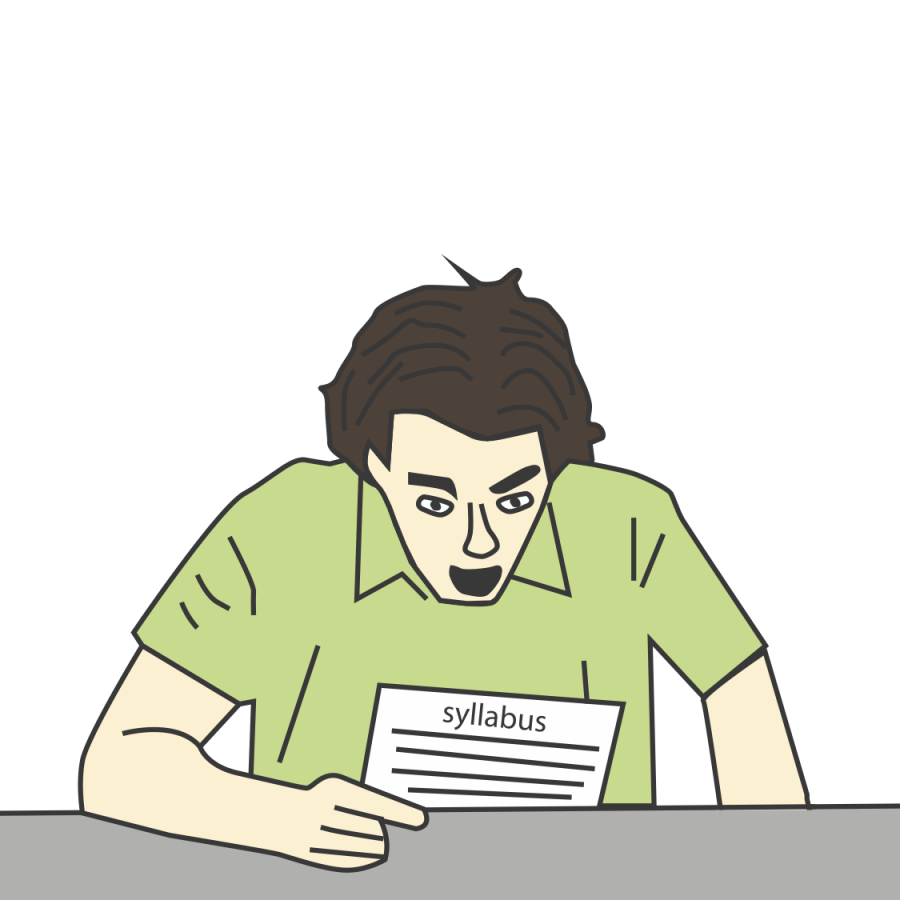Opinion | One-free-absence policies are unfair
February 3, 2020
Other than threats over cheating and jokes that fall flat, syllabus week is filled with one other unfortunate refrain: no late work.
It’s become ubiquitous for professors to lecture about the merits of the one free drop — whether you’re sick, or your car broke down, or you had a panic attack, or your depression is getting worse or you woke up with a lot of motivation but by the time you finished brushing your teeth all you had the energy to do was stumble back into bed, there’s one free drop, and you don’t even have to send an email.
As if there’s only one disaster that can befall a person over a 16-week period.
Stringent one-drop policies seem to be many professors’ preferred method of ensuring “fairness.” This way, there’s no need to evaluate a never-ending stream of emails and requests, and no pressure to be fully impartial. One size fits all.
A policy that treats everyone the same would only be fair if everyone were the same. And it’s quite clear that just isn’t the case. A student whose tuition and expenses are fully taken care of is very different from a student working three jobs to put themselves through school, and not just with respect to the sheer amount of free time.
Get The Daily Illini in your inbox!
Juggling work schedules and classes and running cost-benefit analyses before every decision, whether it’s buying groceries or staying home from work when you’re sick, is immensely exhausting. Financially vulnerable students have to spend a significant portion of their mental bandwidth on figuring out how to scrape by. Studies have shown that the same group of people perform much better on cognitive ability tests when they’re financially stable than when they’re strapped for cash—when you’ve got a million things to worry about, it’s hard to focus.
It can be difficult to have empathy rather than fear in these kinds of situations. Many people are wary, sometimes even paranoid, of people taking advantage of compassionate systems. As a result, they push those already dealing with a plate that’s overflowing to simply work harder to pull themselves up, to just keep grinding until they make it.
In reality, nobody wants to fail—we’re all just born with wildly different advantages. If you suddenly start suffering from migraines in your freshman year of college, what can you do about it? Professors, especially in 100- and 200-level courses, are unlikely to even consider a request for accommodations without documentation from a primary care physician, but getting that documentation in the middle of the semester could be impossible.
The only option available to most students is to just grind through the rest of the semester, which could have serious consequences on not just academic performance, but physical and mental health.
The only feasible way to get an exception from strict attendance or late work policies is either to have such a grave emergency that you talk to the Dean’s Office or to be registered with DRES as having a physical or mental disability.
But college is when mental illnesses, learning disabilities and other stress-related issues manifest for a lot of people. Trying to manage school and life on your own without any structure or routine makes it easy for disorders that come with a severe decrease in motivation or executive functioning abilities, like depression or ADHD, to take over your life. Add in the stress of working to put yourself through school and pay bills, and it’s easy to see how deadlines could slip through the cracks.
Being diagnosed with a learning disability or a mental illness, however, is notoriously difficult and expensive. Although you can get diagnosed through the University, the process can take over a full semester. And even after diagnosis, accessing resources like medication is still out of reach for many students, given the exorbitant costs of prescription medications.
What fixing a problem like this really requires is obviously systemic change. But until we can reach that point as a country and as a society, our University and our professors need to step up.
Having a counseling center isn’t enough—information about the symptoms and signs of mental illness needs to be shared with students. Professors need to be open to discussing accommodations for any student who needs it, whether their issues have expensive and time-consuming medical documentation or not.
The stress of dealing with things like managing bills, invisible illnesses and mental disorders has serious ramifications on academic performance, and it’s time we stopped pretending that treating everyone the same is fair – and time to start leveling the playing field.
Sandhya is a junior in LAS.







